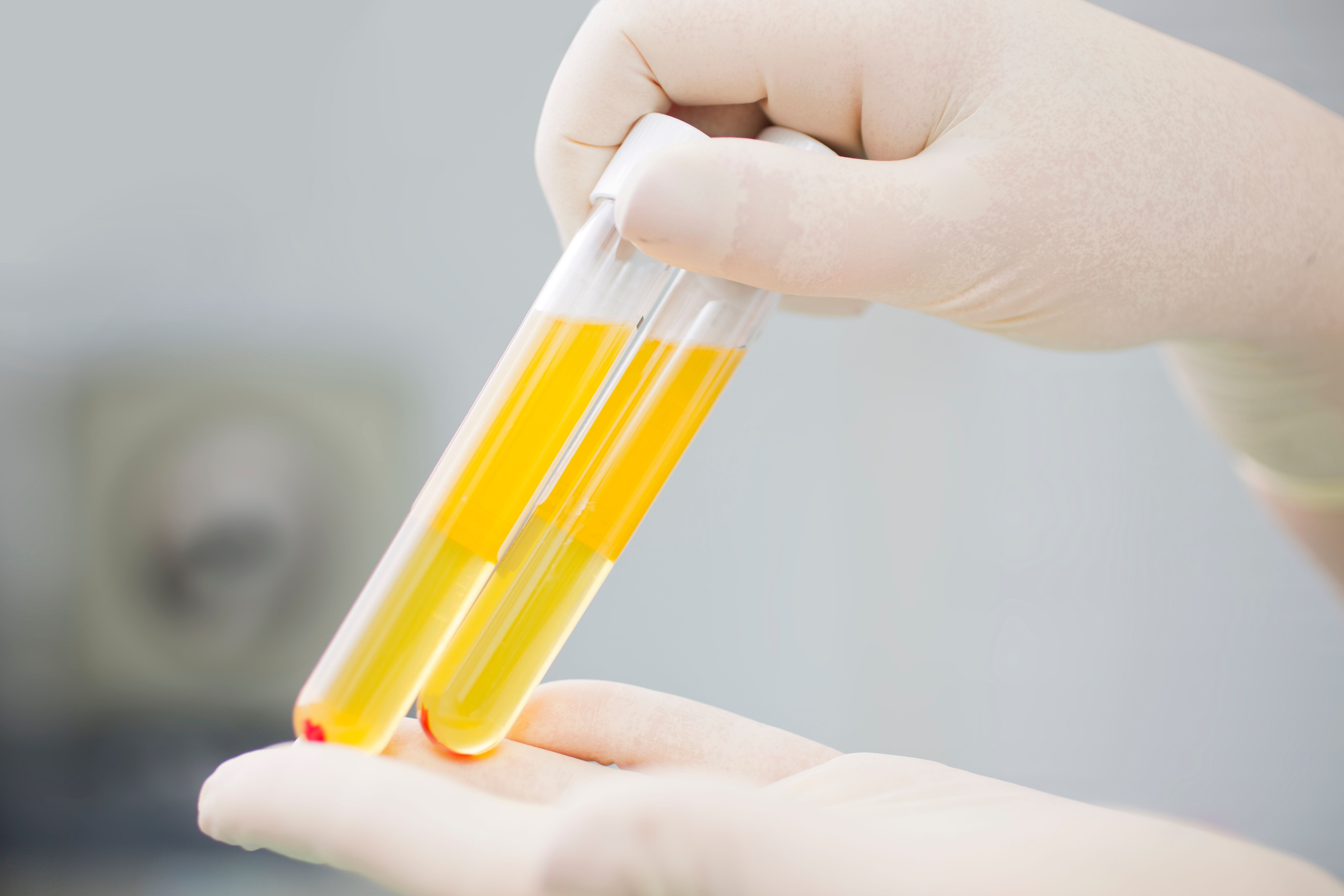HPLC-MS/MS for Extracting Favipiravir from Plasma Samples
A recent study out of the Tabriz University of Medical Science in Tabriz, Iran and the University of Birjand in South Khorasan, Iran tested a new system for detecting and extracting favipiravir from plasma samples. Their findings were published in the Journal of Pharmaceutical and Biomedical Analysis (1).
blood plasma in test tubes for plasmalifting | Image Credit: © Iryna&Maya - stock.adobe.com

Favipiravir, which is sold under the brand name Avigan, is an antiviral drug that is used to treat influenza. The medication is also being investigated as a treatment for COVID-19. Favipiravir inhibits viral replication by arresting RNA polymerase. The pharmacokinetic complexities of the drug and its results need further study for scientists to properly understand the correct dosages for patients. This has led to the determination of biological samples, like urine and plasma, being used to prescribe the correct dosage of favipiravir.
Various methods have been used to determine different analytes in real samples, such as high-performance liquid chromatography (HPLC) equipped with tandem mass spectrometry (MS/MS) detector (HPLC-MS/MS), HPLC-ultraviolet detector, and electrochemical sensors. However, these methods cannot be used directly for drug analysis, since the sample matrix is complex and low concentrations of drugs are used. As such, a suitable sample preparation method is needed to remove impurities and disturbing factors, in addition to aiding with analyte preconcentration. Ideal extraction methods should be fast, simple, repeatable, and inexpensive, and they should use low volumes of less toxic organic solvents. For this study, the scientists decided to focus on dispersive solid phase extraction (DSPE), which is based on dispersing a solid sorbent into a liquid sample to extract and clean-up different analytes from complex matrices.
Read More: CRISPR-Powered Microfluidics Devices for Detecting SARS-CoV-2 and HIV
The scientists decided to focus on using yolk-shell nanostructures, which are advanced core-shell structures with an empty space between their core and their shell. These nanostructures are notable for their tunable physical and chemical properties, as well as their structural configuration. For the experiment, the scientists prepared a mesoporous silica yolk-shell adsorbent in the dispersive solid phase extraction (DSPE) of the analyte from plasma. This was used for sample preparation before HPLC-MS/MS analysis, before being optimized, validated, and then being used to extract favipiravir from plasma samples.
The synthesized sorbent presented a high adsorption capacity for favipiravir, which can be credited to its mesoporous structure and different interactions. Once effective paraments, such as the amount of sorbent and pH that were used and the adsorption and desorption times, were established, the method’s analytical parameters were evaluated. The method showed a wide linear range from 0.50 to 1000 µg/L, with the detection and quantification limits being 0.15 and 0.50 µg/L, respectively. The method’s relative standard deviation was obtained using intra- and inter-day tests, with both results being less than 6.0%. Finally, the method successfully measured for favipiravir in plasma with relative recoveries in the range of 87–105%. These findings may hint at the future of favipiravir in fighting COVID-19 and other diseases. However, further research is needed before this can be fully confirmed and applied in practical ways.
Reference
(1) Nosratzehin, F.; Mofathenia, P.; Gharagozlou, M. et al. Extraction of Covid-19 Drug (Favipiravir) from Plasma Samples by Yolk-Shell Mesoporous Silica Before HPLC-MS/MS Determination. J. Pharm. Biomed. Anal. 2024, 239, 115874. DOI: https://doi.org/10.1016/j.jpba.2023.115874
TD-GC–MS and IDMS Sample Prep for CRM to Quantify Decabromodiphenyl Ether in Polystyrene Matrix
April 26th 2024At issue in this study was the certified value of decabromodiphenyl ether (BDE 209) in a polystyrene matrix CRM relative to its regulated value in the EU Restriction of Hazardous Substances Directive.
LC–MS/MS-Based System Used to Profile Ceramide Reactions to Diseases
April 26th 2024Scientists from the University of Córdoba in Córdoba, Spain recently used liquid chromatography–tandem mass spectrometry (LC–MS/MS) to comprehensively profile human ceramides to determine their reactions to diseases.
High-Throughput 4D TIMS Method Accelerates Lipidomics Analysis
April 25th 2024Ultrahigh-pressure liquid chromatography coupled to high-resolution mass spectrometry (UHPLC-HRMS) had been previously proposed for untargeted lipidomics analysis, but this updated approach was reported by the authors to reduce run time to 4 min.